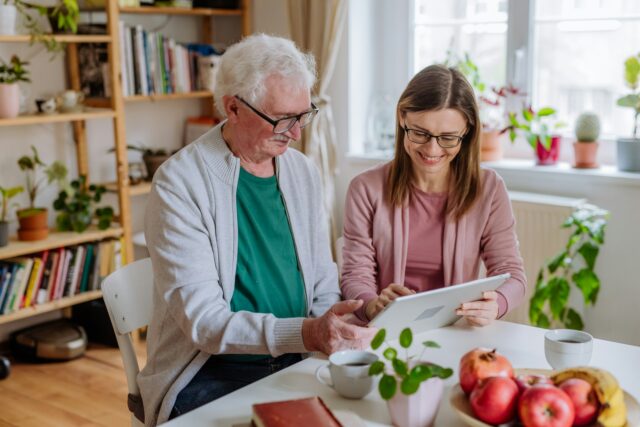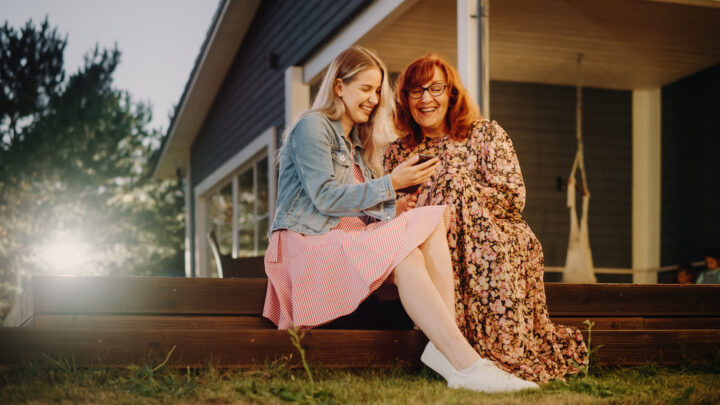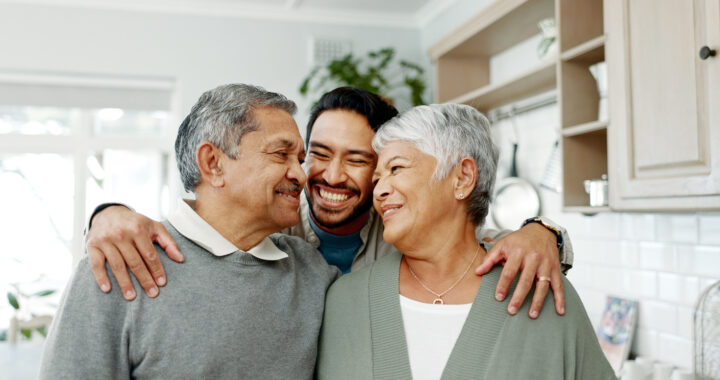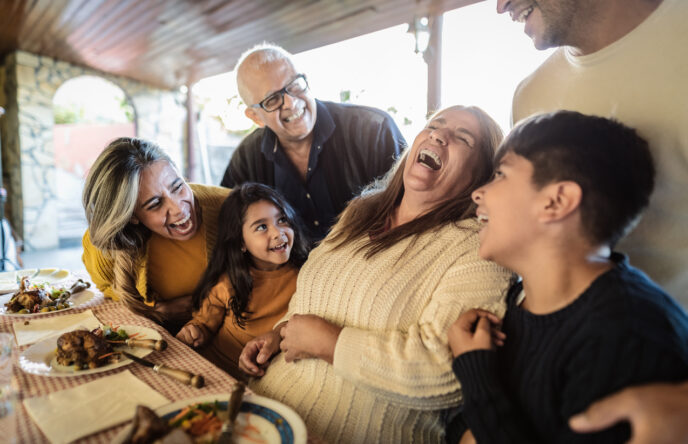You don’t always notice it straight away, but putting some distance between you and your parents can change the whole relationship for the better.

While you might have been desperate to get out from under their roof and start living life on your own terms, you come to realise that your parents weren’t actually the enemy. Having your own space and a bit of time away doesn’t just clear your head, it also repairs your bond. Sometimes, moving out is the very thing that brings you closer.
1. You stop reacting out of habit and start responding with more clarity.

When you’re not in the same space, those knee-jerk reactions slow down. You’re not constantly being pulled into old roles or patterns, so you get the space to actually think before responding. That alone changes the tone. With less tension in the air and no immediate pressure, you can process things instead of snapping back. It creates room for calmer conversations that would’ve felt impossible when you were under the same roof.
2. You start seeing your parents as human instead of just authority figures.

Once you’re out living your own life, their decisions and behaviours make more sense. You see how hard it is to juggle everything, and even if you still don’t agree with everything they did, you get why they did it. It doesn’t mean excusing harmful behaviour—it just means there’s space to see them as full people with flaws, limitations, and their own baggage. That change often softens some of the resentment without forcing forgiveness.
3. Conversations become more intentional.

When you don’t see each other every day, you don’t waste time on surface stuff. Phone calls or visits become something you actually carve out time for, and that makes interactions feel more meaningful. You ask better questions, listen more closely, and start forming a relationship that’s less about obligation and more about genuine interest. The quality of the connection often improves, even if the quantity drops.
4. You stop feeling like everything they say is a personal attack.

With space between you, it’s easier to hear them without immediately going on the defensive. You’re not in the thick of old arguments anymore, so their opinions don’t land with the same sting they once did. You might still disagree with them, but it’s easier to pick your battles or let things roll off your back. That emotional buffer helps you keep your cool and protect your peace without cutting them off.
5. You’re able to set boundaries without as much guilt.
 Source: Pexels
Source: Pexels Distance makes it easier to practise saying no. Whether it’s declining a visit, skipping a phone call, or asking for space, it feels more manageable when you’re not right there under their roof. Once you realise the world doesn’t end when you hold your boundary, it gets less scary. That confidence can actually improve the relationship because you’re not secretly building resentment while trying to keep the peace.
6. You stop feeling like you have to fix everything for them.
 Source: Unsplash
Source: Unsplash When you’re not constantly around, it’s easier to let go of the pressure to manage their emotions or solve their problems. You realise they’re responsible for their own wellbeing—and that’s a healthy realisation. That doesn’t mean you stop caring. It just means you stop over-functioning, which often allows a more balanced and respectful relationship to grow in place of the old, draining dynamic.
7. They start respecting your independence more.

Once you’re out on your own, making your own choices, paying your own bills—they can’t help but see you differently. Even if they don’t say it out loud, there’s often a subtle change in how they speak to you. They may still offer advice or worry, but they begin to treat you more like an adult. That new tone of mutual respect gives the relationship a better shot at evolving into something healthier.
8. You get to reflect on your childhood without being stuck in it.

Distance gives you room to process what you went through with clearer eyes. You’re not constantly being reminded of old wounds, so you can look at them with a little more emotional distance. That reflection might bring grief, clarity, or even some healing. But it’s yours. And it happens on your timeline, not theirs, which is something that can only really happen once you’re outside the old environment.
9. They begin to appreciate the parts of you they used to criticise.

Things that once annoyed or worried them—your sensitivity, your independence, your boldness—start to look a little different when they see how those traits serve you out in the world. With some space and time, your parents often begin to admire what they used to misunderstand. That little change in their tone can feel surprisingly healing, even if it’s never explicitly acknowledged.
10. You get to decide what kind of relationship you want now.

When you’re not bound by childhood dynamics, you get to ask yourself what kind of connection you actually want with your parents—not just what you’ve always had. You’re not trapped in default anymore. That freedom lets you rebuild something new, on your terms. Maybe it’s more distant but peaceful. Maybe it becomes closer in a way it never was before. Either way, it’s more intentional and far less tangled.
11. They start turning to you for advice sometimes.

It’s strange at first—your parent asking what you think about something. However, when you’re living your own life, that adult-to-adult switch starts to happen. And with it comes a new level of mutual respect. Being seen as someone they can turn to—not just their kid—can feel validating, especially if you’ve spent years feeling like they didn’t take you seriously. It makes the relationship feel more equal and mature.
12. You become less reactive to their triggers.

The things they say or do that used to send you into a spiral lose a bit of their power. You have your own space, your own life, and that gives you a cushion against the emotional flare-ups. You might still feel annoyed or hurt sometimes, but it doesn’t hijack your whole mood. The physical distance gives you more emotional distance too, and that can be a game-changer for your own peace.
13. You realise which parts of the relationship are still worth holding onto.

When you’re not caught in the day-to-day noise, the good stuff becomes clearer. Maybe it’s their humour, their loyalty, or their ability to show up when it counts. Distance helps you notice those things more. When you can focus on what actually feels good, the relationship has a better chance of healing and growing—without needing to pretend the past never happened.
14. You understand that healing doesn’t always mean being close again.

Sometimes, the healthiest thing is simply not feeling bitter anymore—even if the relationship stays distant. Letting go of old pain doesn’t have to mean going back to how things were or forcing closeness that isn’t there. Healing can look like detachment with peace. It can look like less tension in your chest when they call. That kind of change matters just as much as reconciliation, and sometimes even more.




